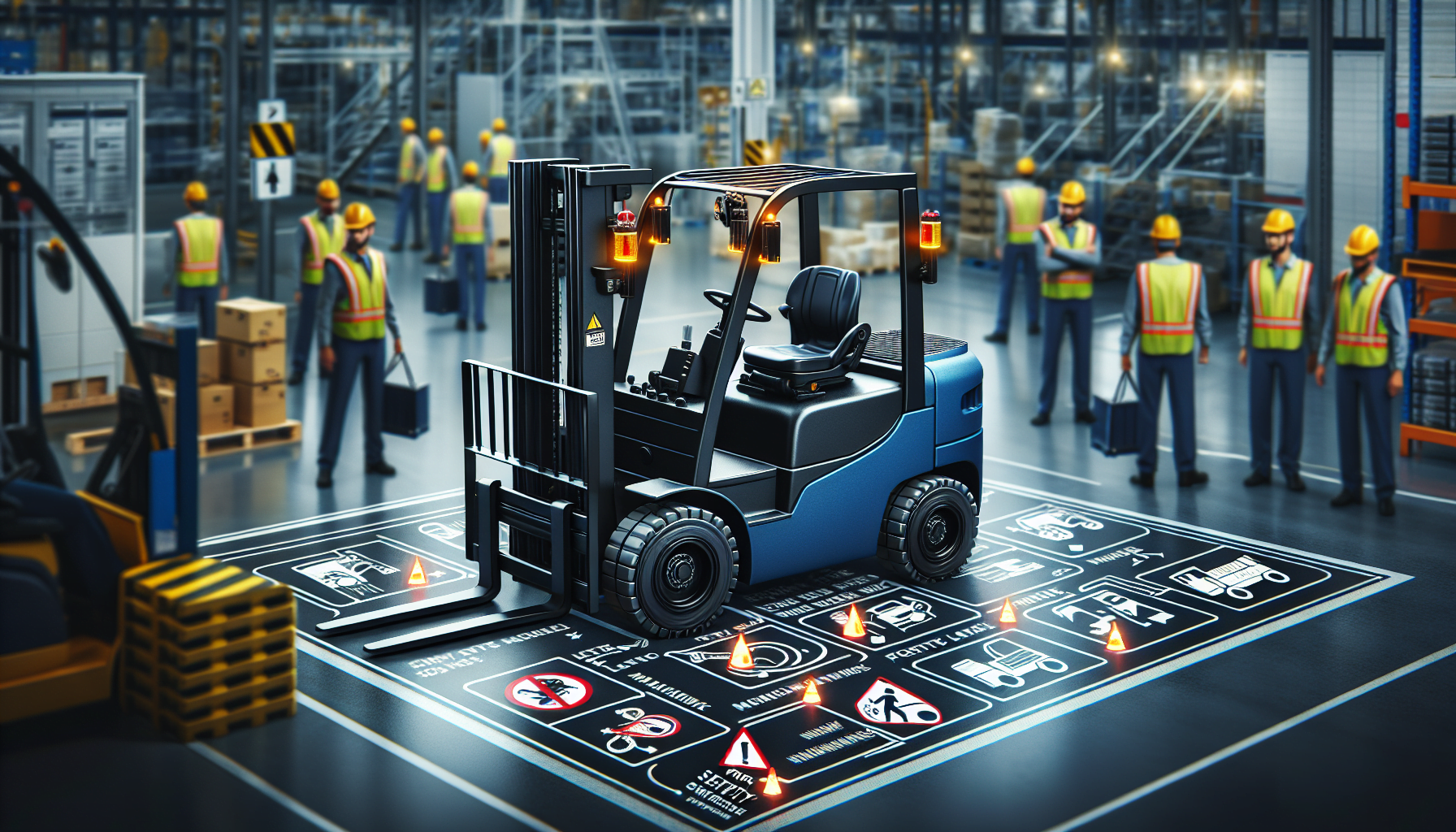Forklifts play a crucial role in warehouse operations, especially in the context of lean manufacturing. Their efficiency and effectiveness in material handling contribute significantly to increased productivity and streamlined processes. However, it is essential to prioritize forklift safety to ensure a smooth and accident-free operation within the warehouse.
The Importance of Forklift Safety in Lean Manufacturing
Lean manufacturing focuses on eliminating waste, reducing costs, and maximizing efficiency throughout the production process. Forklifts are an integral part of lean manufacturing as they assist in the movement and transportation of materials and products. However, without proper safety measures in place, forklift operations can pose a significant risk to workers and disrupt the entire production flow.
Implementing forklift safety protocols is crucial for the following reasons:
- Employee Safety: The well-being of employees is paramount in any work environment. Forklift accidents can result in severe injuries or even fatalities. By prioritizing forklift safety, employers demonstrate their commitment to protecting their workforce and providing a safe working environment.
- Increased Productivity: Forklift accidents can lead to delays, downtime, and damage to products or equipment. By enforcing stringent safety measures, such as regular maintenance and operator training, the risk of accidents and subsequent disruptions can be minimized. This, in turn, ensures a more efficient and productive operation.
- Cost Savings: Forklift accidents not only have human costs but also financial implications. Damaged products, equipment repairs, and potential legal consequences can result in significant financial losses. Prioritizing forklift safety helps reduce these risks and saves the company from unnecessary expenses.
- Regulatory Compliance: Occupational Safety and Health Administration (OSHA) regulations require employers to ensure the safe operation of forklifts and provide training for employees. By complying with these regulations, companies avoid penalties and maintain a positive working relationship with regulatory agencies.
Now that we understand the importance of forklift safety in lean manufacturing, let’s explore some key measures that can be implemented to enhance safety within the warehouse:
Key Measures for Forklift Safety
- Proper Training: It is crucial to provide comprehensive training to forklift operators. Training should cover not only the technical aspects of operating the forklift but also emphasize safety protocols, such as proper load handling, speed limits, and awareness of surroundings. Regular refresher courses should also be conducted to ensure ongoing competence.
- Maintenance and Inspections: Regular maintenance and inspections are essential to ensure that forklifts are in optimal working condition. This includes checking the brakes, tires, lights, and other critical components. Any issues should be promptly addressed to prevent accidents caused by equipment failure.
- Clear Signage and Markings: Clearly marked pedestrian walkways, forklift traffic zones, and safety signs are essential for maintaining a safe work environment. This helps to prevent collisions, promote awareness, and guide employees on the safe use of forklifts.
- Implementing Safety Equipment: Equipping forklifts with safety features such as seat belts, warning lights, reversing alarms, and mirrors can significantly reduce the risk of accidents. Employers should also ensure that operators wear appropriate personal protective equipment (PPE) such as high-visibility vests and hard hats.
- Regular Safety Audits: Conducting routine safety audits helps identify potential hazards and areas for improvement. Safety audits should include inspections of work areas, adherence to safety protocols, and operator compliance with regulations.
- Continuous Safety Training: Safety is an ongoing endeavor, and it is essential to provide continuous education and training to employees regarding forklift safety. This can include toolbox talks, safety meetings, and engaging employees in safety initiatives.
HCO Innovations specializes in warehouse optimization solutions, including enhancing safety measures within warehouse operations. They offer warehouse safety evaluations to identify areas of improvement and help companies implement effective safety strategies.
In conclusion, forklift safety plays a pivotal role in lean manufacturing by ensuring the well-being of employees, increasing productivity, reducing costs, and ensuring regulatory compliance. By implementing key safety measures and partnering with experts like HCO Innovations, companies can create a safer work environment and achieve their lean manufacturing goals.

